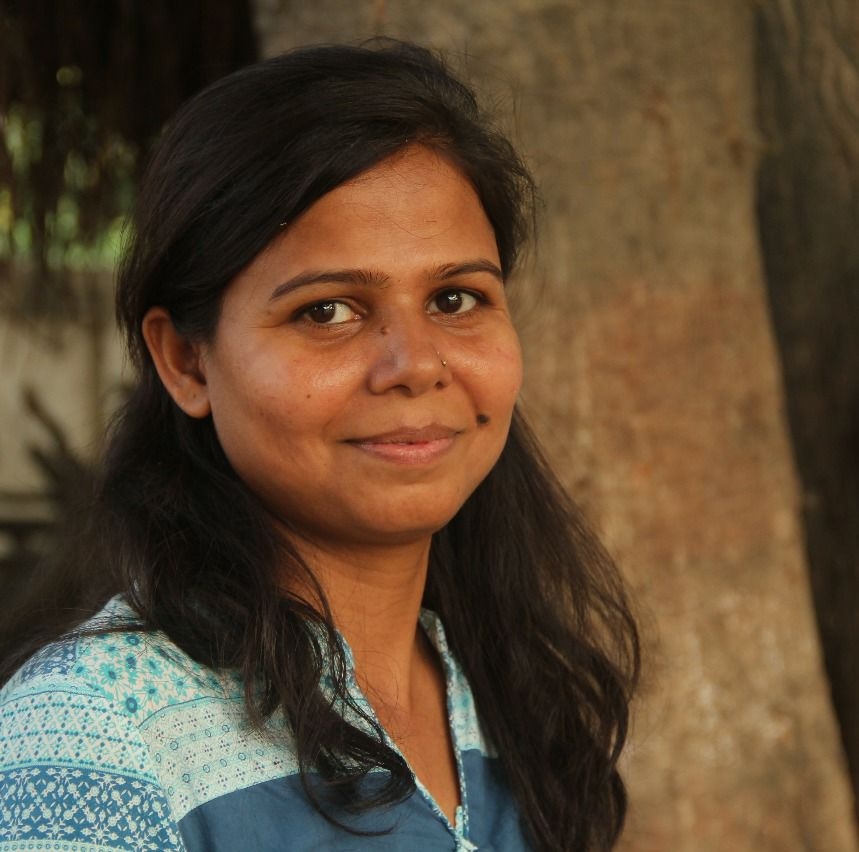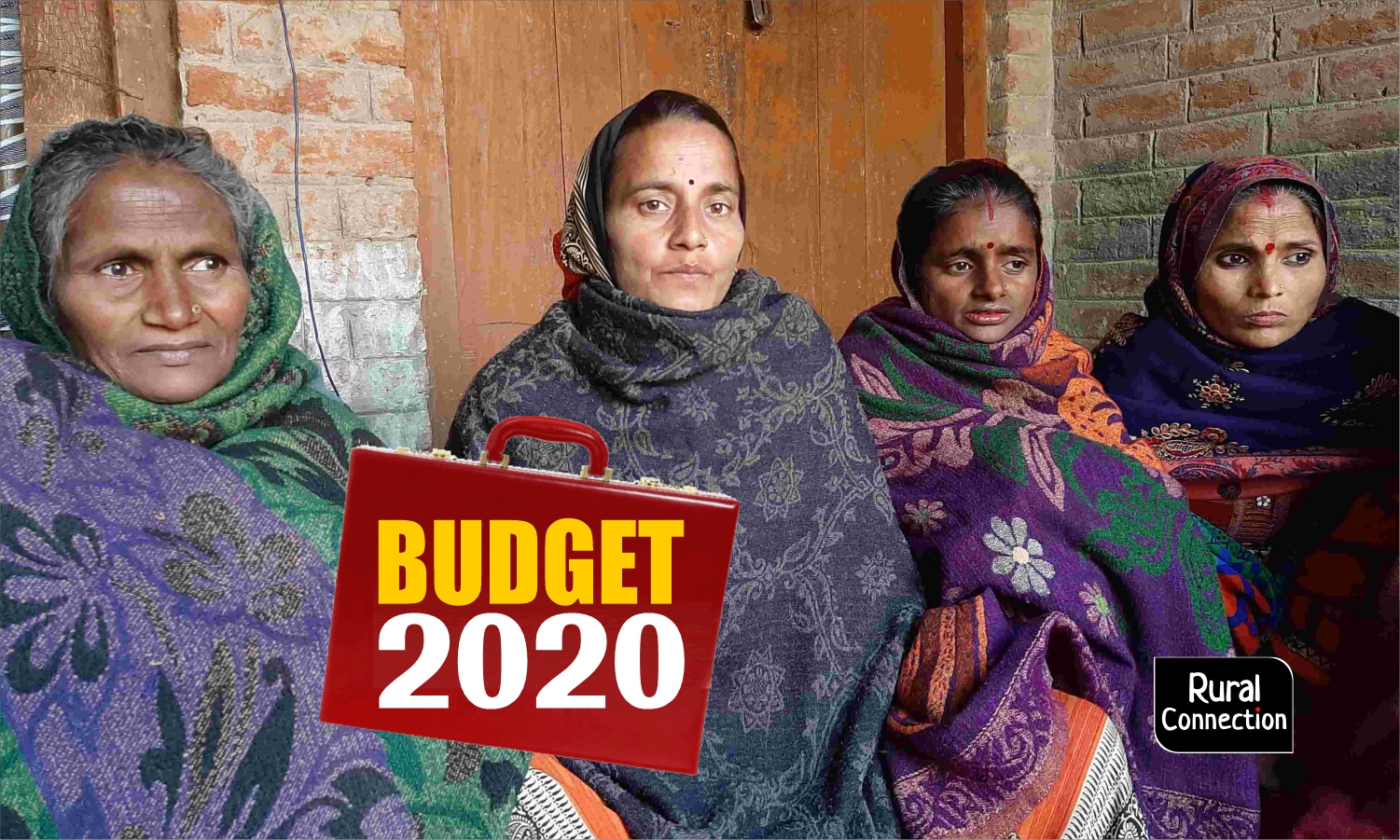Safety, jobs, access to welfare schemes … what are the women expecting from the Budget?
When we spoke to girls and women living in rural India about the forthcoming Budget, their response was varied. Some said they were hearing the word 'budget' for the first time


“We got neither housing nor widow pension. Prices have shot up the roof. Now even eating potatoes and onions is beyond us. What do the poor do with the budget?” asked Phoolmati Rawat, 55, while fetching firewood from the jungle.
Phoolmati, who resides in Noorpur Behata village of Gosaiganj block, which is about 25 kms from Lucknow district headquarters, added: “The fact that we are even asked about our problems before the Budget is a first for me. As a matter of fact, I have come across the term ‘Budget’, today, for the first time in my life. As if there is only one problem to be told.”
Finance Minister Nirmala Sitharaman will present the General Budget of 2020-21 on February 1. When Gaon Connection spoke to the women and girls of rural India about the forthcoming Budget, their response was varied. While some were hearing the word ‘Budget’ for the first time, others were the victims of inflation and unemployment. Many expressed concerns over the education and safety of girls. Some demanded employment after getting free education till 12th. Candidates also expressed disappointment over failure to secure benefit of government schemes.
When contacted, a female employee working with 181 – a women helpline in Uttar Pradesh – said on the condition of anonymity: “This is an important scheme of the government, yet we did not get salaries for several months. How do we help women without money? We should be first paid salaries. 350 women employees working here have not received payment from the department since June 2019.

While the Nirbhaya fund in Uttar Pradesh has a Budget of Rs 119 crore — out of this only Rs 3 crore 93 lakh has been spent so far — this important scheme is on the verge of closure. Many of them working here talked about getting their due salaries first thing in the Budget.
Munni Devi, 40, a resident of Noorpur Behata village said: “The job card of MGNREGA doesn’t get us work for 365 days. Work is provided only for 100 days a year and money is also very low. It does not last long. It will be very good if the government helps us start a work that gets money every month.” Like Munni, millions of women across the country seek around the year employment from the government.
Munni Devi got a gas connection under the Ujjwala Yojana, but could not refill the cylinder due to costly gas. She wants the price of LPG to be reduced in this budget.
Since the inception of the Ujjwala Yojana, the price of domestic cylinders has increased by more than 30%. In May 2016, the price of non-subsidized domestic cylinder (14.2 kg) was close to Rs 550 whereas, by December 2019, the price of domestic cylinder had risen to about Rs 750.
Lost in her thoughts, seventeen-year-old Neha was moving towards the jungle. Why did she quit her studies after tenth? “I would have studied further if I had the money to do so,” said Neha. “Who would mind studying? One can only study for free till Class VIII. Had there been a provision for free education till Class 12, many girls like me would have continued studying.” Like Neha, millions of girls in the country are not able to study for want of money.
Finance Minister Sitharaman had allocated Rs 280 crore for the ‘Beti Bachao Beti Padhao’ scheme in 2019-2020. According to the Ministry of Women and Child Development, the budget for women is increased every year. If one looks at the figures for the last three years — the budgetary allocation was Rs 20,396.36 crore in 2017-2018, it had gone up to 24,758.62 crore in 2018-2019 and was 29,164.90 crore in 2019-2020.

The increase in the Budget is a good sign for women but it will be an important step towards empowerment of women if the impact of its growth is visible on the ground level.
Some girls and mothers from the village accompanied Neha to the jungle to collect firewood. Neha’s mother Munni Devi said: “The girls cannot be left alone. Just look, how bad the times are? What has the government provided us in the name of security? Should something bad happen to our girls, there is no one to listen to us.” This concern is not only of Munni Devi, but for the 1.25 billion women population of the country, safety is a major issue.
Last year, before the Budget 2019-2020, Gaon Connection had spoken to 18,267 people from 19 states of the country on women safety. In this survey of rural India, people were asked how safe their women and girls feel leaving their house. Around 63 per cent had said that women in their homes feel safe to get out during the day, but not so after sunset. Around 11 per cent said that they never felt safe.
These rural women and girls had neither the understanding nor had much to do with the Budget coming on February 1, 2020, but they told all those issues which had to be considered in the Budget.
Lakshmi Devi, 25, a resident of Silli block in Ranchi district of Jharkhand, told Gaon Connection over the phone: “The government must control inflation. Those who have studied should be given work according to their eligibility. Alcohol must be prohibited. Water should be provided for drinking and irrigation. We face a serious water problem.” There is indeed a serious shortage of pure drinking water in Jharkhand — 85 per cent of its land is dependent on rainwater for irrigation.
Water was also an important issue in the Gaon Connection survey wherein people from 19 states were asked to identify their source of water. The second question was, how far do the women of their homes go fetching water? According to the survey, about 39.1 per cent of women have to get out of the house for water. Of these, 16 per cent, — about 3,000 women, the source of drinking water was at least one kilometre to five kilometres away.
“The Budget should provide funds to prevent human trafficking,” said Veena Devi, a resident of Palamu district of Jharkhand. “Child marriage must be scrapped. Sanitary pads should be made cheaper. Every poor should be given a home to live. Vegetables, spices and dal are to be reasonably priced so that the poor can also eat well.”

Presenting the Budget in July 2019, Finance Minister Nirmala Sitharaman had said that by 2022, 1.95 crore poor households will be provided with houses that would take only 114 days each to build. Earlier, it took 314 days to build a house. So, the finance minister’s words had instilled hope of a house in millions of homeless across the country.
Last year, the finance minister’s words had made Kumkum Devi, 33, very happy. She is a resident of Maseda Ratan village of Maal block, about 50 kms away from Lucknow district headquarters. She said: “For two years, our money from the housing scheme has been stuck, which is coming in instalments. The house has not yet been completed. If one gets oneself a home in such a short time, everyone will benefit. Right now, we are not able to get any money despite years of effort.”
But under the Pradhan Mantri Awas Yojana, houses are still not being constructed in 114 days. Sixty-five-year-old Laxmi Devi said: “We are illiterate. We do not know of any plan of the government. We have no knowledge of any Budget. We just know that it is very difficult for us to take advantage of any scheme. Leave the rest, even the things that are needed every day are not provided to us.”
So far, Lakshmi Devi has neither got toilet nor a house under the Pradhan Mantri Awas Yojana or Swachh Bharat Mission. She said: “Unless we get the benefit of a scheme, how do we know that these schemes were made for us. Claims may be tall but there is not much work in reality.”
“Even in a government hospital, they simply prescribe medicines on paper, medicines from outside are very costly. At least in hospitals, the poor must get free medicines. Sometimes there isn’t any doctor, but no one is going to listen to us,” said Rajkumari, 44. “The government should provide us ready jobs so that we may feed ourselves. There are a lot of difficulties for the poor, what to do?”

